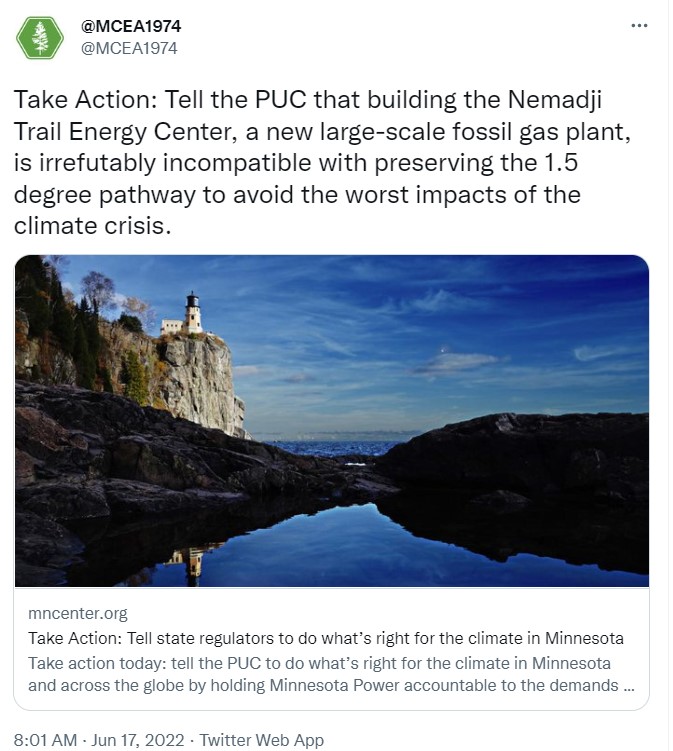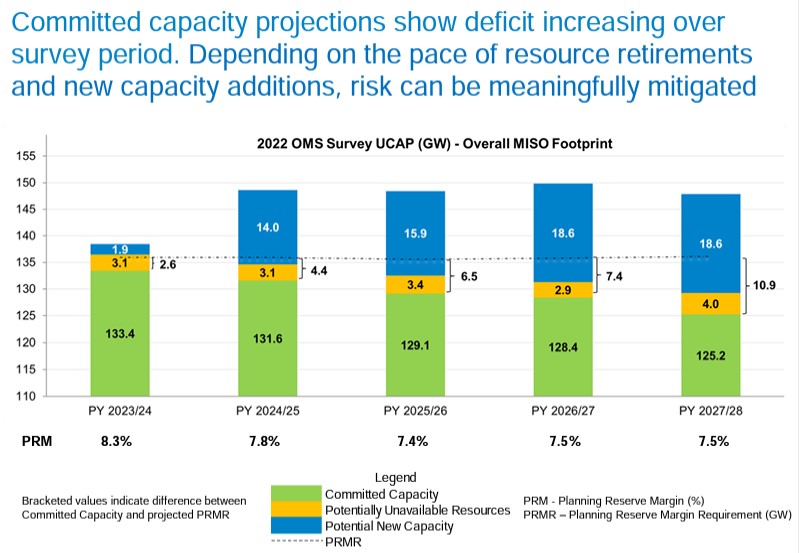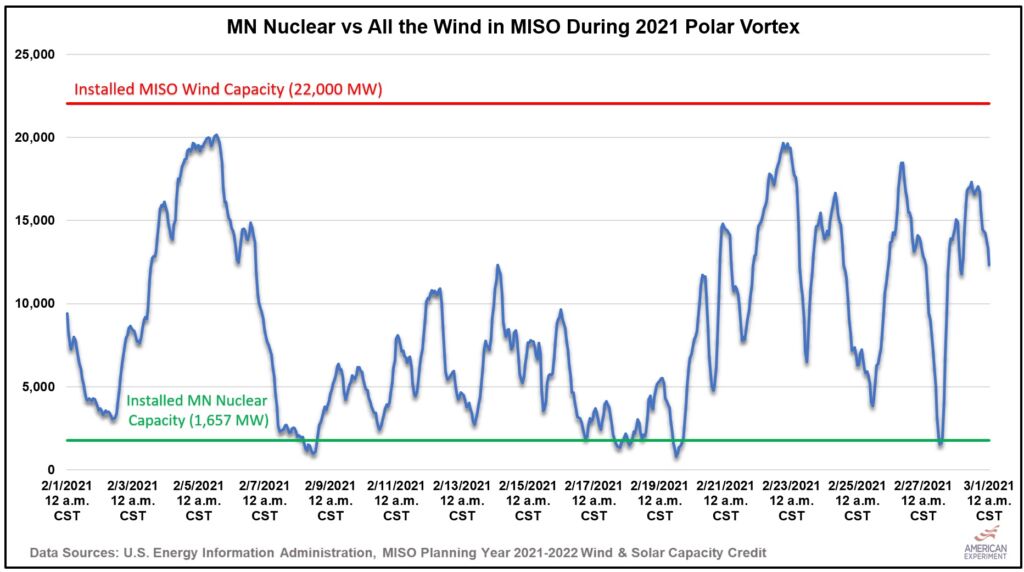Despite blackout risks, MN Center for Environmental Advocacy is fighting a new natural gas plant
The North American Electric Reliability Corporation (NERC) has issued a report warning that the regional electric grid to which Minnesota belongs, the Midcontinent Independent Systems Operator (MISO), faces the highest risk of rolling blackouts in the entire country.
Despite the elevated risk of blackouts, the Minnesota Center for Environmental Advocacy (MCEA) is lobbying the Minnesota Public Utilities Commission (PUC) to stop the construction of a new 625 megawatt (MW) natural gas power plant in Superior, Wisconsin.

Not only is MCEA to prevent the construction of a new power plant, but they are attempting to accelerate the closure of the Boswell Energy Center, a crucial, 938 MW coal-fired power plant in Cohasset, Minnesota.
This means MCEA is trying to prematurely shut down a coal-fired power plant capable of powering 35 percent of the homes in Minnesota during an average hour, while arguing that we should replace it with zero long-duration dispatchable capacity. Only wind, solar, and battery storage.
This is unconscionable because MISO already has a 1,200 MW capacity shortfall, which is why rolling blackouts are a distinct possibility this summer. This capacity shortfall could grow to 2,600 MW next year and 10,900 MW by 2027, and MCEA’s irresponsible actions are making blackouts more likely.

Not only has MCEA opposed using the coal and natural gas plants necessary to avoid blackouts in Minnesota, they have also done nothing to legalize the construction of new nuclear power plants in this state.
This is simply indefensible because nuclear power would actually allow Minnesotans to utilize reliable, affordable, and carbon-free power every hour of the day, 365 days per year. And unlike wind turbines, nuclear power plants operate even if temperatures are below -22°F.

MCEA’s opposition to coal, natural gas, and nuclear energy means that when the blackouts eventually arrive, the blood will be on their hands.